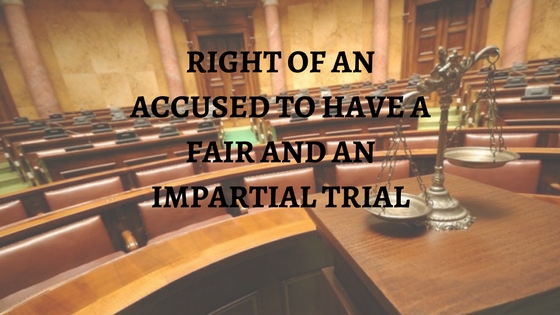Aapka Consultant Judgment Series- In this series, we are providing case analysis of Landmark Judgments of Hon’ble Supreme Court of India.
Zahira Habibullah Sheikh & Anr. v. State of Gujarat & Ors.
(2006) 3 SCC 374
JUDGES: Arijit Pasayat and H.K. Sema
Date of Decision: 08-03-2006
FACTS:-
This case has its matrix in an appeal filed by the appellants and another appeal filed by the State of Gujarat. The basic focus in the appeal was absence of an atmosphere conducive to fair trial. Zahira made a grievance that she was intimidated, threatened and coerced to depart from the truth and to make statement in Court which did not reflect the reality. The Trial Court and the High Court rejected the prayer of the appellants and directed the acquittal of the accused persons. Hence the present appeal filed before the Supreme Court. Online casinos also have expansion movements and Novomatic continues to grow. Check them out.
ISSUE:-
Whether the appellant Zahira has been imparted with fair and impartial trial by the court as enshrined under the Constitution of India?
JUDGMENT:-
The Hon’ble Supreme Court gave directions along with the important observations on ‘witness protection’. It has observed that the state has a key role in the protection of witnesses from those who have political patronage and who can use their muscle and money power to vitiate the trial and getting it derailed and the truth becomes a casualty. The state has a duty to ensure that the witness should depose freely without any fear of being haunted by those against whom he had deposed. Every State is under a constitutional obligation to protect the life and liberty of its citizens and there cannot be any deviation from this requirement because of any extraneous factors like cast, creed or religion etc. If ultimately the truth is to be arrived at, the witnesses, which are considered to be the eyes and ears of justice, must be protected and they do not get debilitated in the sense of making the proceedings before courts mere mock trials. The Legislative measures to emphasise prohibition against tampering with witness, victim or informant have become the imminent and inevitable need of the day. The conducts which illegitimately affect presentation of evidence before the courts in a proceeding have to be sternly dealt with. On the contrary, efforts should be to ensure a fair trial where the accused and the prosecution both get a fair deal.
The Court further observed that right from the inception of the judicial system in the country, it has been accepted that the discovery, vindication and establishment of truth are the main purposes underlying the existence of the Courts of Justice. The principle of fair trial informs and energizes many areas of the law. It is reflected in various rules and practices. It is a constant, ongoing development process continuously being adapted to new and changing circumstances, social impart and societal needs and even in so many powerful balancing factors which may come in the way of administration of criminal justice system. The concept of fair trial entails familiar triangulation of interests of the accused, the victim and the society; therefore, the courts have an overriding duty to maintain public confidence in the administration of justice by providing fair trial.
Denial of fair trial is as much injustice to the accused as it is to the victim and the society. Fair trial would obviously mean a trial before an impartial judge, a fair prosecutor and in an atmosphere of judicial calm. Failure to accord fair hearing to the accused or even to the prosecution violates the minimum standard of due process of law. It is inherent in the concept of due process of law that condemnation should be rendered only after the trial in which the hearing is a real one, not sham or a mere farce and pretence. Since the fair hearing requires an opportunity to preserve the process, it may be vitiated and violated by an overhasty stage-managed, tailored and partisan trial. The fair trial for a criminal offence consists not only in technical observance of the frame, and forms of law, but also in recognition and just application of its principles in substance, to find out the truth and prevent miscarriage of justice.
HELD:-
The Court ordered a re-trial of the case outside Gujarat in which nine out of seventeen accused were convicted by a Special Court in Mumbai in 2006. The Court held that every person has a right to a fair trial by a competent court in the spirit of the right to life and personal liberty enshrined under Article 21 of the Constitution of India.
To Get Legal Opinion from Advocates/ Legal Experts, Please click here
To Get Legal Opinion from Retired Hon’ble Judges, Please click here












